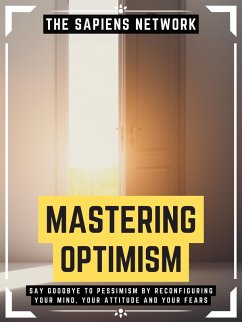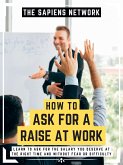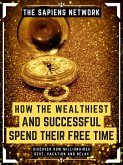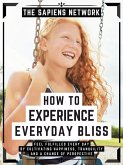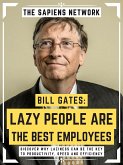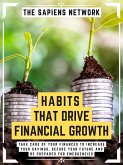MASTERING OPTIMISM
SAY GOODBYE TO PESSIMISM BY RECONFIGURING YOUR MIND, YOUR ATTITUDE AND YOUR FEARS
ABOUT THIS BOOK
Yes, it is possible to learn how to become an optimist. As with any skill, it takes practice and persistence. Learning how to be optimistic starts with changing your mindset, which means being more positive about life in general.
You may not have the power over external circumstances such as traffic or rainstorms, but that doesn't mean that you can't control your reaction to them.
Once you've mastered your mindset, then try changing your habits—how you respond when something bad happens or when something good happens (or when nothing at all happens).
Next are behavior patterns: how often do they occur? Are they healthy? Once these things are addressed, then it's time for perspective modification; what do I need right now? Is my current state of mind helping me reach my goals?
CONTENT
Introduction: Is It Possible To Learn How To Become An Optimist?
How To See The Glass Half Full?
What Is An Optimist?
What Is A Pessimist?
How To Be Optimistic With Realism?
Why Does Your Response To Adversity Determine Your Level Of Optimism?
How Optimism Relates To Resilience?
Why Are Optimists Higher Achievers?
Why Do Optimists Have Better Overall Health?
What Is A Growth Mindset In Optimists?
What Is A Fixed Mindset In Pessimists?
How To Learn From Failure With Optimism?
How To Change Your Perspective When Things Go Wrong?
How To Face Setbacks With Optimism?
Practicing Gratitude Can Help Us Remain Optimistic?
Helping Others Helps Us Remain Optimistic?
Why Is It Important To Remember That All Bad Experiences Are Transient?
How To Reframe Stressors To Remain Optimistic?
Why Practicing Self-Compassion Helps You Become Optimistic?
Why Optimism Doesn’t Mean We Ignore The Bad News?
Why Must You Not Take Everything Personally In Order To Remain Optimistic?
Why Is Objectivity Important To Become Optimistic?
What Is Blind Optimism?
How To Avoid Blind Optimism?
How To Halt The Onset Of Pessimism?
ABOUT THE SAPIENS NETWORK
The content in this guide is based on extensive official research and comes from a variety of sources, mostly from books published by experts who have mastered each of the topics presented here and who are backed by internationally recognized careers.
Therefore, the reader will be able to acquire a large amount of knowledge from more than one reliable and specialized source. This happens because we rely only on official and endorsed media. In addition, we also collect information from different web pages, courses, biographies, and interviews, so we give the reader a broad overview of their topics of interest.
We have not only checked that the sources of knowledge are relevant, but we have also made a very careful selection of the final information that makes up this guide. With great practicality, we have compiled the most useful concepts and put them in a way that are easiest for the reader to learn.
Our ultimate goal is to simplify all the ideas that they are fully understandable and so that the reader can enjoy a pleasant, practical, and simple reading. This is why we strive to provide only the key information from each expert.
In this guide, the reader will not find redundancies or unnecessary or irrelevant content. Each chapter covers the essential and leaves out everything that could be deemed as extra or that does not add anything new to the selected concepts.
Thus, the reader will be able to enjoy a text where they will easily find specialized information that comes exclusively from experts and that has been selected with the greatest effectiveness.
SAY GOODBYE TO PESSIMISM BY RECONFIGURING YOUR MIND, YOUR ATTITUDE AND YOUR FEARS
ABOUT THIS BOOK
Yes, it is possible to learn how to become an optimist. As with any skill, it takes practice and persistence. Learning how to be optimistic starts with changing your mindset, which means being more positive about life in general.
You may not have the power over external circumstances such as traffic or rainstorms, but that doesn't mean that you can't control your reaction to them.
Once you've mastered your mindset, then try changing your habits—how you respond when something bad happens or when something good happens (or when nothing at all happens).
Next are behavior patterns: how often do they occur? Are they healthy? Once these things are addressed, then it's time for perspective modification; what do I need right now? Is my current state of mind helping me reach my goals?
CONTENT
Introduction: Is It Possible To Learn How To Become An Optimist?
How To See The Glass Half Full?
What Is An Optimist?
What Is A Pessimist?
How To Be Optimistic With Realism?
Why Does Your Response To Adversity Determine Your Level Of Optimism?
How Optimism Relates To Resilience?
Why Are Optimists Higher Achievers?
Why Do Optimists Have Better Overall Health?
What Is A Growth Mindset In Optimists?
What Is A Fixed Mindset In Pessimists?
How To Learn From Failure With Optimism?
How To Change Your Perspective When Things Go Wrong?
How To Face Setbacks With Optimism?
Practicing Gratitude Can Help Us Remain Optimistic?
Helping Others Helps Us Remain Optimistic?
Why Is It Important To Remember That All Bad Experiences Are Transient?
How To Reframe Stressors To Remain Optimistic?
Why Practicing Self-Compassion Helps You Become Optimistic?
Why Optimism Doesn’t Mean We Ignore The Bad News?
Why Must You Not Take Everything Personally In Order To Remain Optimistic?
Why Is Objectivity Important To Become Optimistic?
What Is Blind Optimism?
How To Avoid Blind Optimism?
How To Halt The Onset Of Pessimism?
ABOUT THE SAPIENS NETWORK
The content in this guide is based on extensive official research and comes from a variety of sources, mostly from books published by experts who have mastered each of the topics presented here and who are backed by internationally recognized careers.
Therefore, the reader will be able to acquire a large amount of knowledge from more than one reliable and specialized source. This happens because we rely only on official and endorsed media. In addition, we also collect information from different web pages, courses, biographies, and interviews, so we give the reader a broad overview of their topics of interest.
We have not only checked that the sources of knowledge are relevant, but we have also made a very careful selection of the final information that makes up this guide. With great practicality, we have compiled the most useful concepts and put them in a way that are easiest for the reader to learn.
Our ultimate goal is to simplify all the ideas that they are fully understandable and so that the reader can enjoy a pleasant, practical, and simple reading. This is why we strive to provide only the key information from each expert.
In this guide, the reader will not find redundancies or unnecessary or irrelevant content. Each chapter covers the essential and leaves out everything that could be deemed as extra or that does not add anything new to the selected concepts.
Thus, the reader will be able to enjoy a text where they will easily find specialized information that comes exclusively from experts and that has been selected with the greatest effectiveness.
